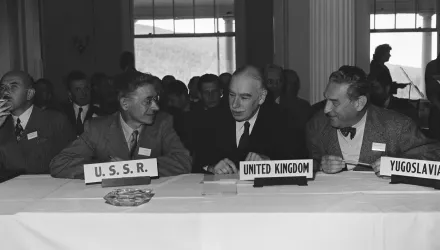International Security is America's leading peer-reviewed journal of security affairs.
Does territorial partition of countries in civil wars help to end these wars, reducing the risk of recurrence? Researchers have proposed territorial partition with or without formal recognition of sovereignty as a solution to civil wars and a way to create self-enforcing peace. Quantitative studies of the effect of partition on the risk of renewed civil war, however, suffer several main shortcomings, including conflicting results in the extant literature that result mainly from data coding differences, selective use of case histories, and methodological problems. A new data set and a benchmark empirical analysis find that, on average, partition is unlikely to reduce the risk of a return to civil war and, in some cases, may increase that risk.
Sambanis, Nicholas. “What’s in a Line? Is Partition a Solution to Civil War?.” Fall 2009



